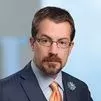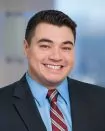On May 22, 2019, a bipartisan group from the House and Senate released a draft framework reforming Sections 101 and 112 of the Patent Act (here).
The draft framework is a proposal responding to the confusing state of judge-made exceptions to patentable subject matter under Section 101. The proposal mandates that patent claims be construed in favor of eligibility. More importantly, the draft framework would statutorily abrogate the judicially created exceptions to patent eligibility, specifically identifying and abrogating the abstract idea, laws of nature and natural phenomena exceptions. These exceptions to patent eligibility became far more prominent after the Supreme Court’s decision in Alice Corp. Pty. Ltd. v. CLS Bank Int'l, 573 U.S. 208 (2014).
The proposal is the result of months of negotiations with major patent stakeholders, most notably the Bio/Pharma and Tech industries. While Bio/Pharma companies would greatly benefit from broadening eligibility requirements to more readily include technologies such as medical diagnostics, the Tech community has largely opposed the effort as it often relies on exceptions to patent eligibility to defeat infringement claims. To bridge this divide, the draft framework presents a revision to Section 112 that will impact the scope of asserted patent claims.
Recent litigation has centered on the applicability of Section 112(f) to “nonce terms” (i.e. functional terms that are not “means for” or “step for”) and the presumption that Section 112(f) is inapplicable to these terms. Williamson v. Citrix Online, LLC, 792 F.3d 1339, 1348 (Fed. Cir. 2015) (en banc). The draft broadens Section 112(f) by mandating that any time the elements of the claim are “expressed as a specified function without the recital of structure, material, or acts in support thereof,” such claim elements are to be construed to cover the “corresponding structure, material, or acts described in the specification and equivalents thereof.” The result of such a change, in many circumstances, would be narrower scope for functional claim language than what patentees currently assert.
Senators Tillis and Coons have set hearings on June 4th, 5th, and 11th to solicit additional stakeholder feedback. Thereafter, it is expected that the revised framework will be formally introduced as a bill in both houses of Congress.
The content of this article is intended to provide a general guide to the subject matter. Specialist advice should be sought about your specific circumstances.



